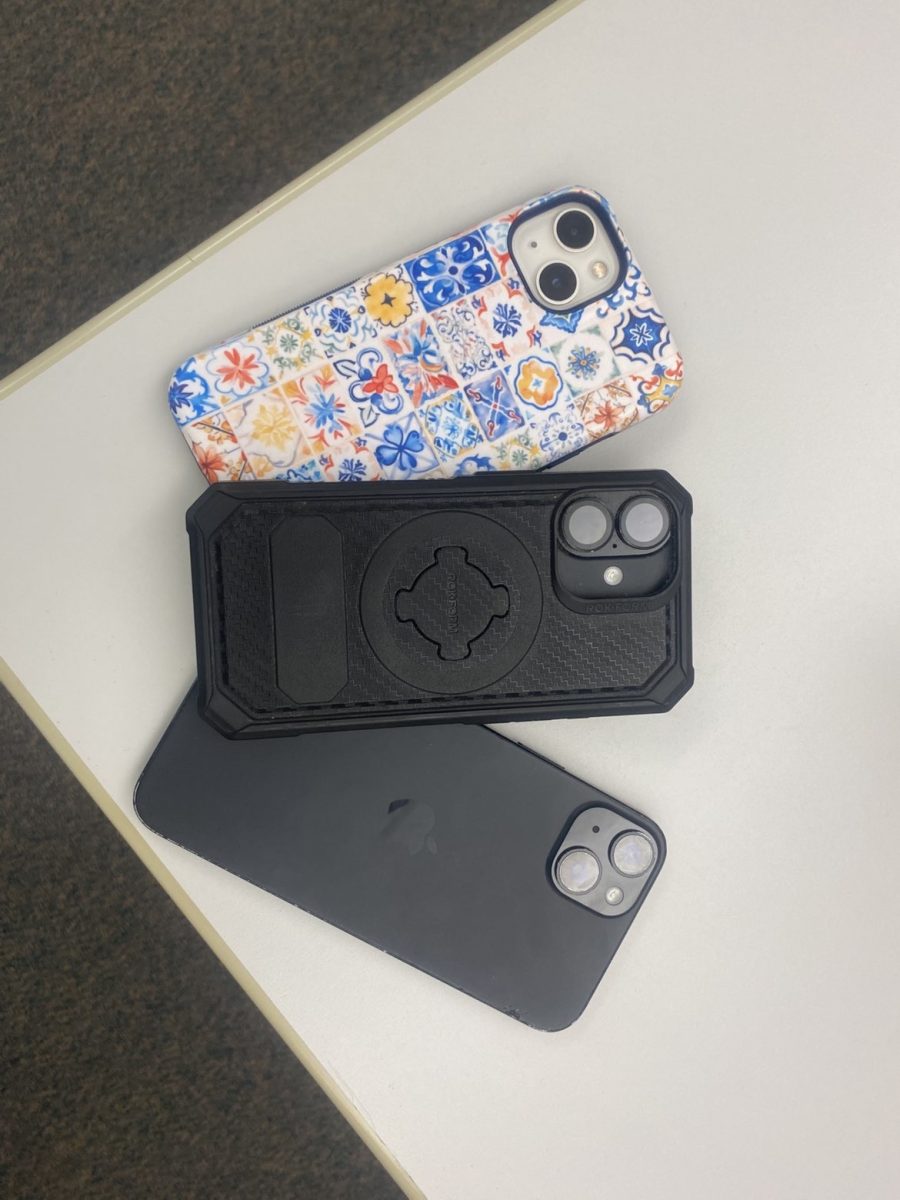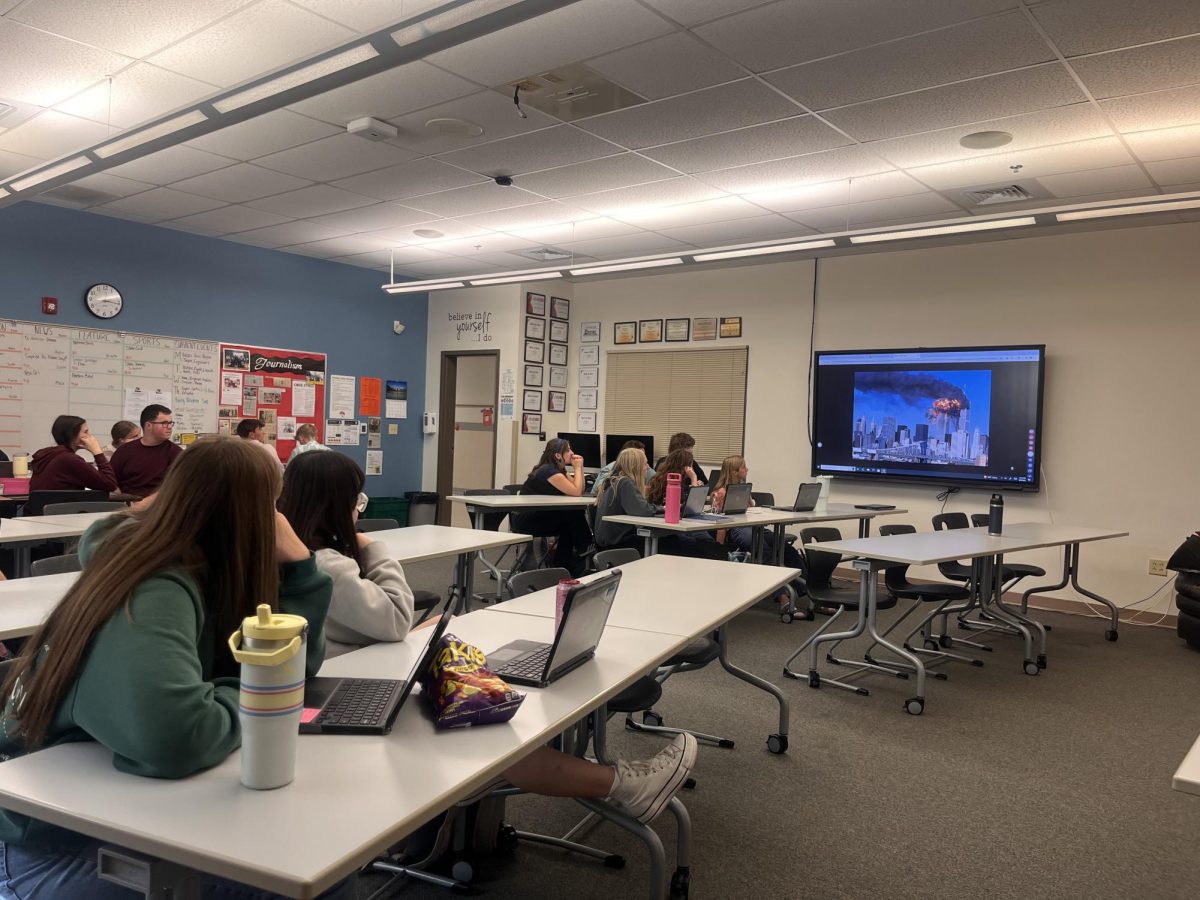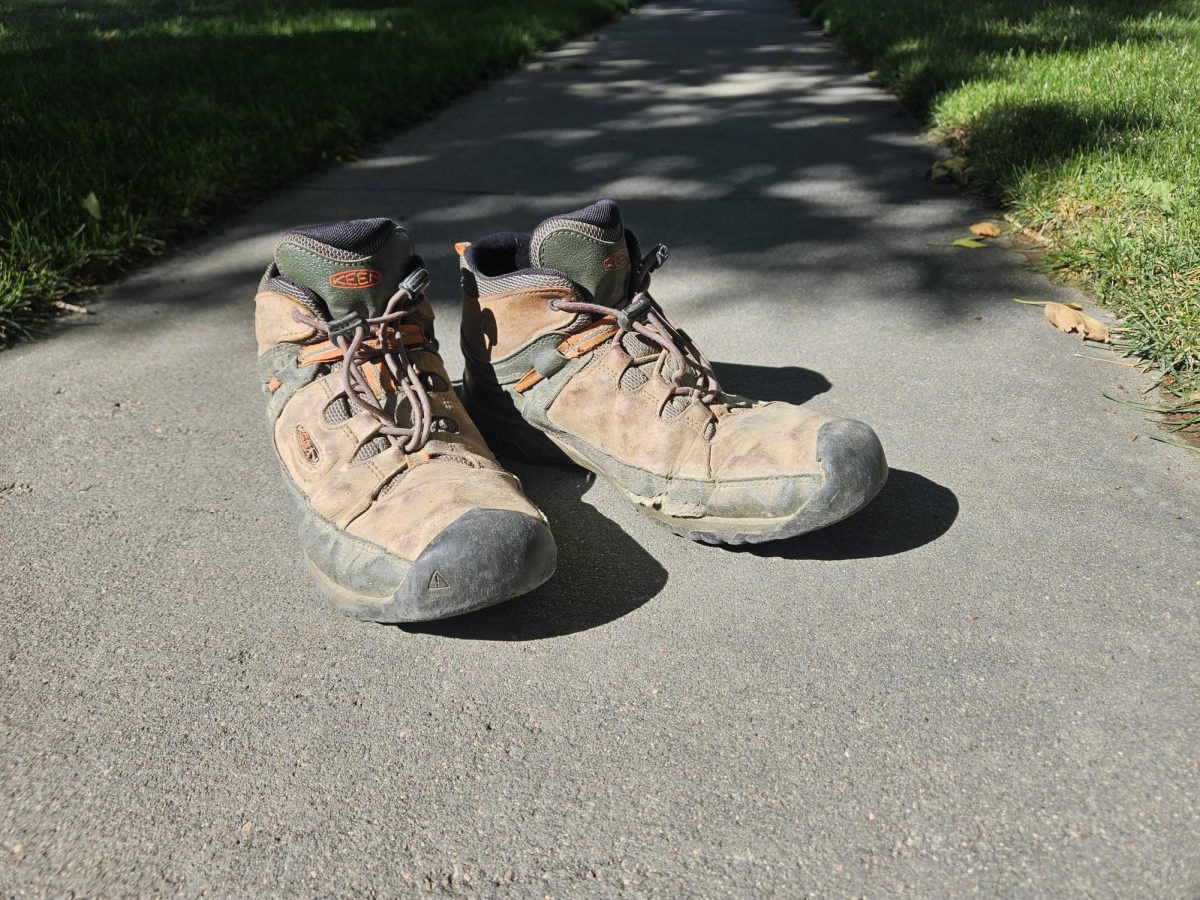The music and headphones ban was implemented along with the phone ban at Powell High School. Students aren’t allowed to use their phones or headphones to listen to music, and they can’t access music platforms on school computers.
Most students have been displeased by this ban, with many finding it disruptive and annoying. Most people don’t even follow the rule. But the main question is, did this ban bring more bad than good, and should it have ever been implemented at all?
“The ban has affected me mainly in the sense that I used music to calm down after tests and also used it to focus,” sophomore Sean Gallagher said. “It’s really sucked not being able to listen to music.”
Many kids use music not only to help them focus, but also to keep them calm when they have school and test anxiety. Music can be used in many forms and ways, and more often than not, students like Sean use it for good.
“Music helps me focus in class, so normally I would just keep one earpiece in,” junior Paige Mcconnell said. “But because of the recent big ban on everything, whenever I lose my headphones, I can’t listen to Spotify on my computer or on YouTube… because of all that stuff being blocked.”
Powell High School has many students with 504 and IEP plans, and in those plans, many are allowed to listen to music. But because of everything being blocked on the school computers, if kids forget their headphones, it becomes difficult for them to listen to anything. This makes it hard for them to focus in class; which makes it feel impossible for them to get their work done.
“Me and my case manager have had to fight tooth and nail with multiple different teachers who believe that I don’t need to [listen to music],” Paige said. “It makes it difficult to do what I need to.”
Despite being legally able to listen to music because of their plans, people with this special access still have trouble with teachers who want the school rules to be followed. But not only do students have trouble with this ban, some teachers do, too.
“Well, kids not being able to use their phones and headphones has made this unit [I’m teaching] a lot harder,” English teacher Bailey Jackson said. “A unit [we do] in English 12 takes a sociological view of music [so], we listen to a bunch of different music.”
Ms. Jackson says that the ban makes teaching this unit harder, and she wishes she could rewrite the ban a bit.
“There are certain cases, like my unit, or, you know, some extenuating circumstances where a kid needs [to listen to music or an audio book],” Mrs. Jackson said. “Headphones are very useful. So I would just change that part to be at the discretion of the teacher.”
Though Mrs. Jackson doesn’t mind the phone ban, she is a bit upset about the headphones ban. She agrees that kids should be allowed to listen to music, as long as they’re doing their work and paying attention, and thinks that part should be up to the teacher.
Overall, the music and headphones ban seems to be disliked. Nearly everyone agrees it should be removed or rewritten, as it is a pain in many ways. This small part of the big phone ban has seemingly caused more displeasure than the actual phone ban itself.









